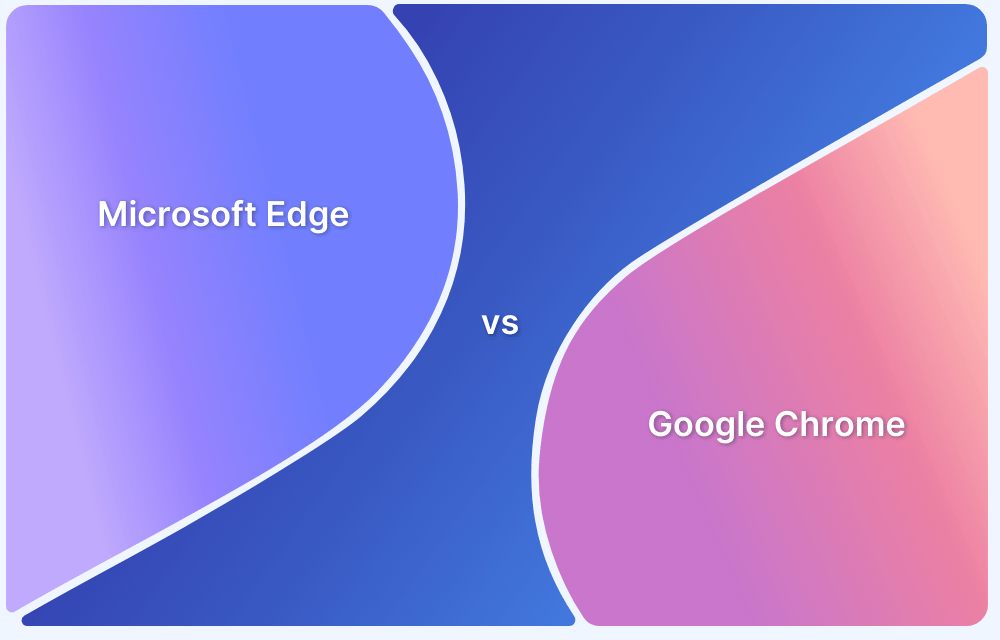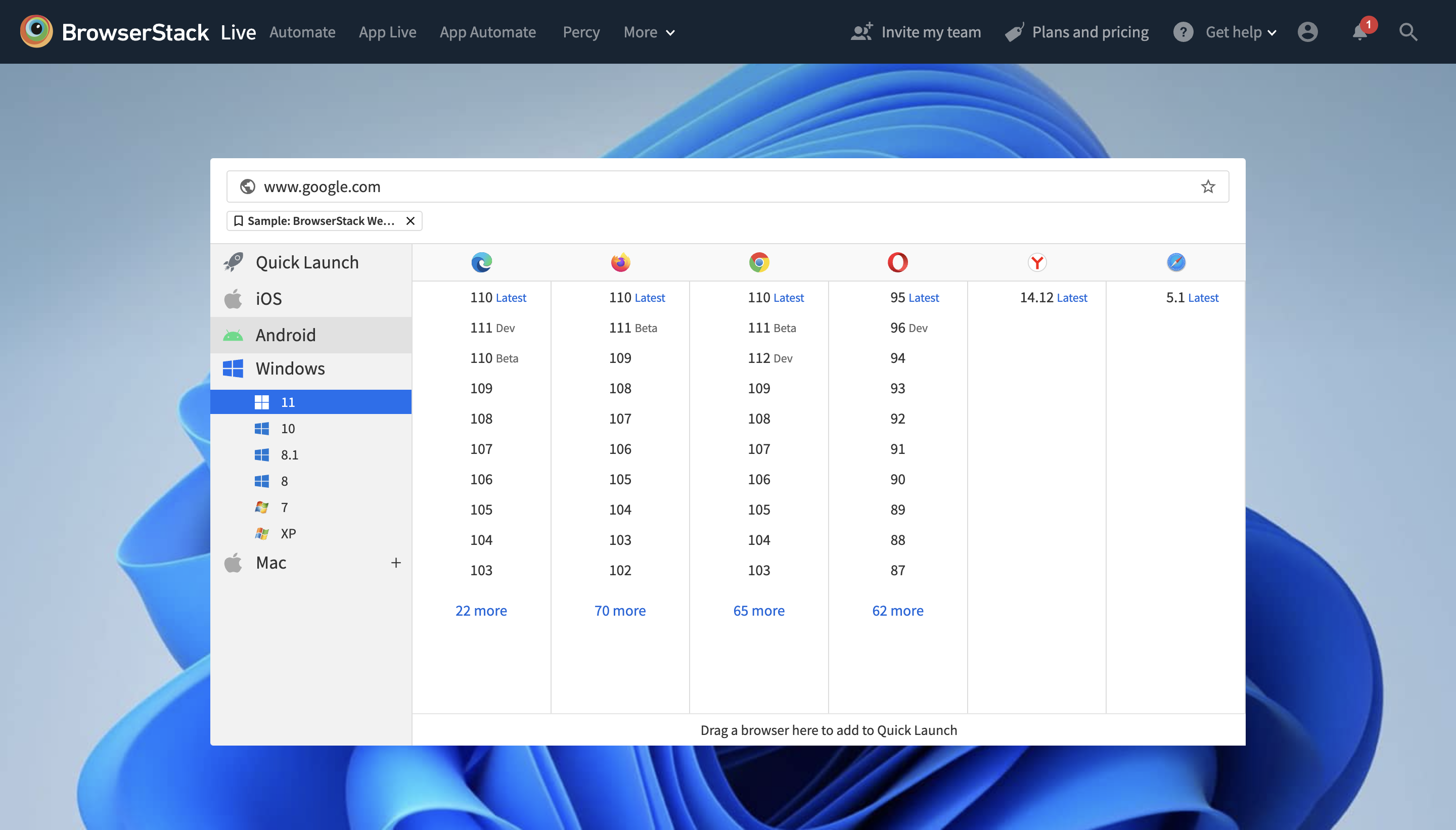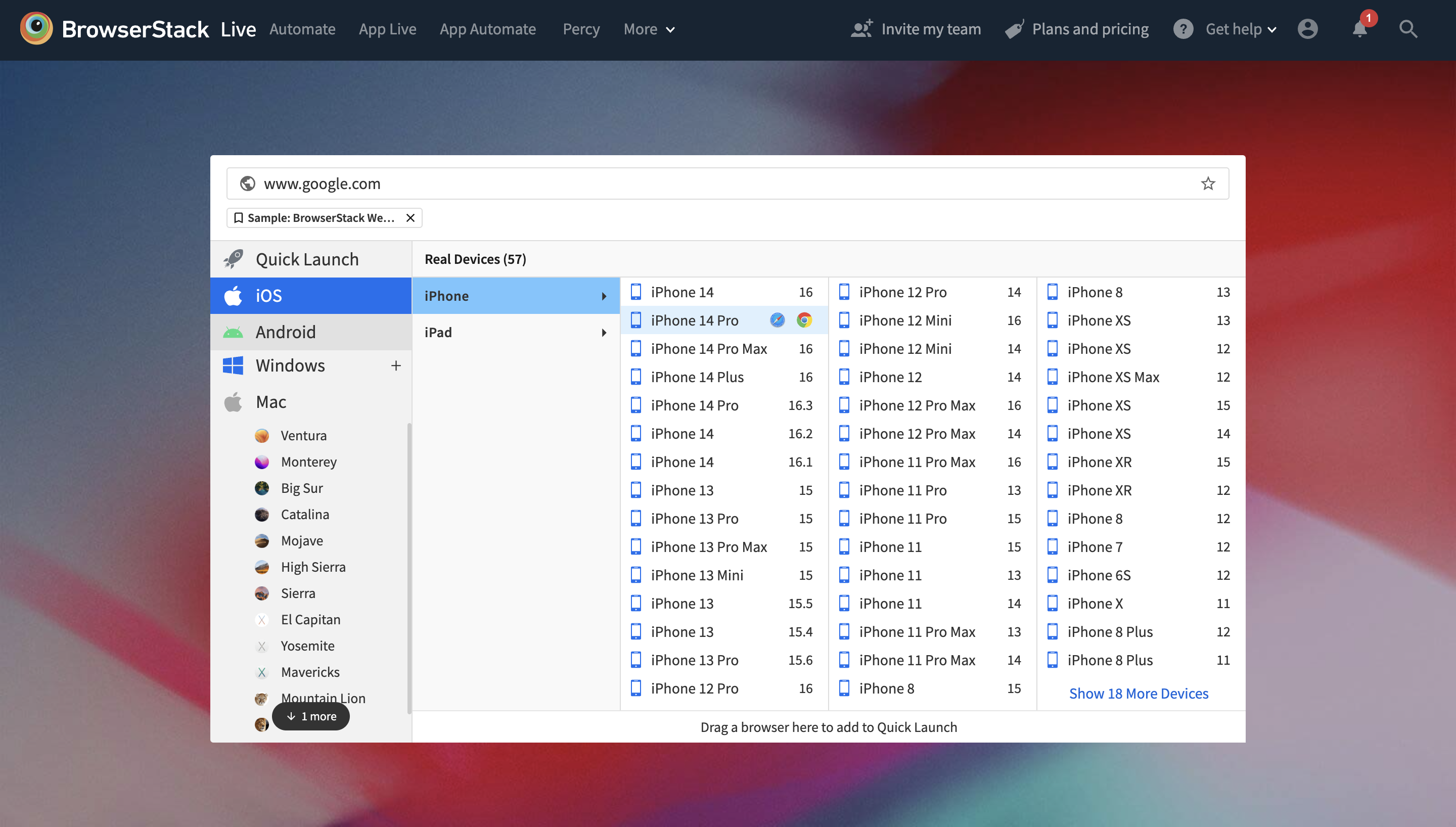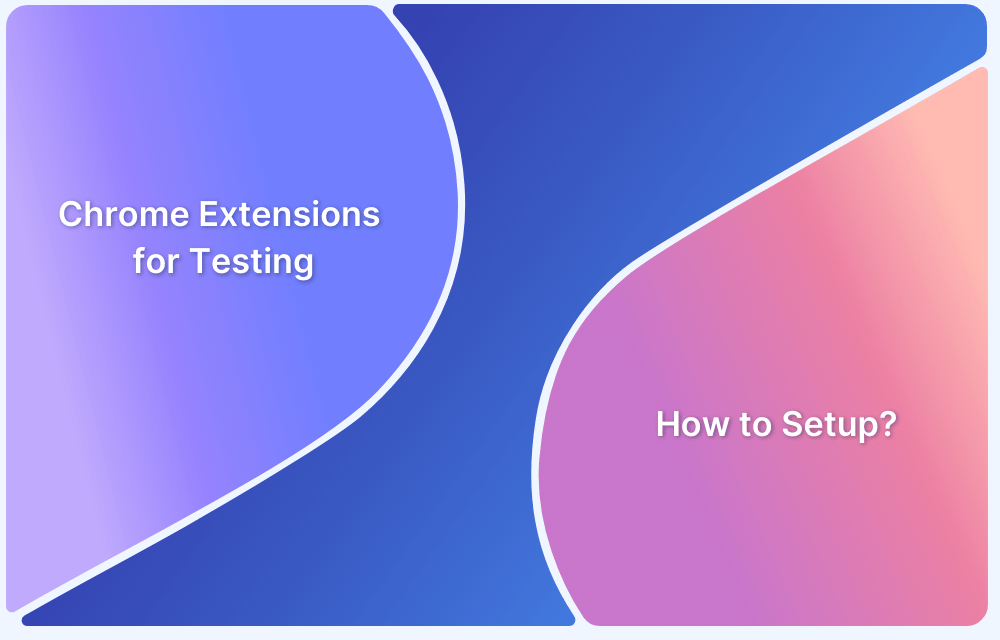When it comes to choosing a web browser, Chrome and Edge are the top contenders.
Chrome is famous for its speed, simplicity, Google Suite integration, and extensive extension library. Edge offers a modern design, unique features, and strong integration with Microsoft products.
This article breaks down the key differences between these browsers to help you decide which one fits your needs best.
Overview of Chrome
Google Chrome is known for its speed and simplicity. Launched in 2008, it quickly became a favorite because of its clean design that makes browsing easy.
Its wide range of extensions let you add useful features like ad blockers and productivity tools, while its smooth integration with Google services such as Gmail, Google Drive, and Google Docs makes it a handy tool for everyday use. Regular updates keep it secure and fast.
Overview of Edge
Microsoft Edge is a modern browser from Microsoft. It launched in 2015 as a replacement for Internet Explorer and was rebuilt on Chromium in 2020 to boost speed and compatibility. Available on Windows, macOS, Android, iOS, and Linux, Edge offers a secure and smooth browsing experience with strong integration into the Microsoft ecosystem.
Read More: How to Test Using Microsoft Edge on Mac
Microsoft Edge vs. Google Chrome: The Current Landscape
Currently, Google Suite and Google Chrome are the definite leaders in browser market share, followed by Safari and Edge.
As part of a Windows update, Edge became impossible to uninstall. Additionally, the increase in remote working adoption led to the purchase of new devices for home offices. There is speculation that new Windows devices with Edge browser packed in might have resulted in increased browser use.
Furthermore, Microsoft has consistently pushed updates to improve the browser experience, especially by facilitating better integration for Windows and Chrome users.
Both Chrome and Edge have embraced AI-powered search, transforming how users interact with the web. Chrome leverages advanced AI capabilities from Google to deliver personalized results and predictive suggestions, while Microsoft Edge integrates Bing Chat to provide contextual insights and a digital copilot experience
Key Features of Chrome
Below are some of the key features of Chrome:
- Speed: Fast page loading and smooth performance.
- Simplicity: Minimalist design for easy navigation.
- Extensions: A vast library of add-ons to customize your experience.
- Google Integration: Seamless use with Gmail, Google Drive, and other Google services.
- Security: Frequent updates to keep browsing safe.
Key Features of Edge
Here are some of the key features of Edge:
- Chromium-Based: Built on the same engine as Chrome for fast, reliable performance.
- Microsoft Integration: Works well with Windows and Office 365.
- Unique Tools: Features like vertical tabs, reading mode, and Collections for better organization.
- Cross-Platform: Available on Windows, macOS, Android, iOS, and Linux.
- Privacy & Security: Strong protections and tracking prevention for safer browsing.
- AI-Powered Search: Leverages Google’s advanced search algorithms for smart results.
Microsoft Edge vs Google Chrome: Feature Breakdown
Here is a breakdown regarding specific metrics and browser features/functionality.
Speed
- When tested on WebXPRT 3, Chrome and Edge were run through six tests replicating real-world conditions, which in particular, test the browsers’ HTML5 and JavaScript performance.
- Edge won by a narrow margin scoring 76 against Chrome’s 73. This was primarily due to Edge winning in the OCR Scan and Encrypt Notes tests.
Resource Consumption
- While both are significantly fast browsers, Edge might have a slight advantage.
- Based on a test in which six pages were loaded on each browser, Edge used 665MB of RAM, while Chrome used 1.4 GB.
- This would make a significant difference for systems running on limited memory.
- Also, Chrome is infamously known for eating up RAM, even on top-of-the-line CPU-OS combinations.
Extensions
- By basing its architecture on Chromium, Edge has provided wide-ranging support for extensions.
- The Microsoft Store’s catalog of extensions is growing quite impressively. Additionally, if an Edge user wants to download an extension only available on the Chrome Web Store, they can download and add it to Edge in a couple of simple steps.
- However, despite these improvements, Edge extensions still grapple with some compatibility issues and are less convenient to use than Chrome extensions. In this case, Chrome still has the upper hand.
Features
Since both browsers are built on the same browser engine (Chromium), there’s not a huge difference in features on their desktop versions. Edge has a “read aloud” feature that vocalizes any highlighted text, but this feature isn’t too good with languages other than English. On mobile, however, Edge has some exciting features that stand out.
- The floating video feature lets users shrink a currently playing video and situate it on the screen when switching to a different tab or window.
- The news guard feature evaluates news outlets users visit and notifies them of the website’s credibility
- The sync feature lets users sync their data between devices through their Microsoft accounts. While the data currently includes only bookmarked pages, settings, passwords, and form data, Microsoft is in the process of letting users sync open tabs, extensions, and browser history.
- Chrome, however, is better integrated with widely used tools like Google Docs and Google Translate (which is much better than Microsoft’s Bing Translate).
- Chrome’s synchronization mechanism is also far more sophisticated and fills in all the gaps Edge leaves.
Security
- To protect users against websites running phishing operations or infected with malware, Edge leverages Microsoft’s SmartScreen system. It works better than Chrome.
- The SmartScreen system sends an alert if a user lands on a website using HTTP instead of HTTPS, letting them know their traffic is unsafe.
- However, Edge is bogged down by its infrequent updates. Usually, Edge updates come once in six weeks, which gives unsavory individuals enough time to identify and act on weaknesses.
- Like Edge, Chrome notifies users when they have landed on an HTTP page.
- However, Chrome wins out because of the high frequency of its security updates.
- With updates every few days (faster than any other browser in the market), Chrome keeps refining and eliminating possible vulnerabilities in its code.
Privacy
- Edge offers three protection modes from tracking – basic, balanced, and struct. Users can also allow individual websites to circumvent protection protocols for all three modes. They can look at the list of blocked trackers so that users know who/what they are being protected from.
- However, since Microsoft has many products, it is confusing to figure out which rules appear to Edge and which apply to software like Windows 11.
- It’s well known that Chrome leverages user data to tailor the data, search results, and ads appearing when they browse the internet.
Platform Compatibility
- Chrome has been around for a while and runs on most platforms – Windows 7 and up, Linux (support for Ubuntu), macOS (10.10 and up), iOS (12.0 and up), iPadOS, Android (5.0 and up), Fedora, Debian, OpenSUSE, and ChromeOS.
- Edge runs on Windows 7 and up, macOS 10.12 and up, iOS (iPadOS) 11.0 and up, and Android 4.4 and up. Support for Linux is currently in development, enabling compatibility with Debian, Ubuntu, Fedora, and OpenSUSE. There don’t seem to be any plans to offer Edge compatibility with ChromeOS.
User Interface
- Chrome focuses on simplicity with a minimal layout and streamlined menus.
- Edge offers a similarly uncluttered look but includes extra features like customizable new tab pages and integrated sidebars for quick access.
Backup and Syncing
- Chrome uses your Google account to sync bookmarks, passwords, extensions, and history across devices.
- Edge syncs favorites, passwords, and settings via your Microsoft account, steadily expanding its syncing capabilities.
Integrations
Native app integrations set these browsers apart.
- Chrome: Deeply integrated with Google services like Gmail, Drive, and Docs, making it ideal for Google ecosystem users.
- Edge: Tightly linked with Microsoft products such as Office 365, OneDrive, and Cortana, offering a seamless experience for Microsoft fans.
| Feature | Microsoft Edge | Google Chrome |
|---|---|---|
| Speed | Scored 76 on WebXPRT 3 (slightly faster due to OCR Scan and Encrypt Notes tests). | Scored 73 on WebXPRT 3 (marginally slower). |
| Resource Consumption | Uses 665MB of RAM when loading six pages (more efficient for low-memory systems). | Uses 1.4GB of RAM for the same test, known for high memory usage. |
| Extensions | Supports Chrome extensions via Chromium base; Microsoft Store’s catalog is growing. | Superior extension library with seamless usability and better compatibility. |
| Features | Unique features: Read Aloud, News Guard, floating video, basic syncing (bookmarks, passwords). | Better integration with Google services (Docs, Translate) and more comprehensive sync features. |
| Security | Leverages SmartScreen for phishing/malware protection but updates every six weeks. | Frequent updates (every few days) for improved security and fast vulnerability fixes. |
| Privacy | Offers three tracking protection modes (basic, balanced, strict) but can be confusing for users. | Tailors ads and content based on user data; less focus on tracker transparency. |
| Platform Compatibility | Windows 7+, macOS 10.12+, iOS 11.0+, Android 4.4+, Linux (in development). | Supports Windows 7+, macOS 10.10+, iOS 12+, Android 5.0+, Linux, ChromeOS, and more. |
With multiple operating systems and platforms in usage, the global online population will access websites via different browser-OS combinations. Test websites on 3500+ device-browser-OS combinations on BrowserStack’s real device cloud.
Is Microsoft Edge better than Google Chrome?
Edge showcases the potential to go head-to-head with Google Chrome and reinvent the search as we know it. It has set itself apart with many impressive features and performance highlights.
However, since Chrome browser features have been around for a while and had an astronomically high adoption rate, it will take something exceptional to dethrone it.
Instead of declaring one browser better, look at it this way.
Bear in mind that Microsoft has withdrawn support for Internet Explorer. However, some users, especially older ones, continue using it because of their familiarity with the browsers. To ensure that websites do not miss out on this section of their potential audience, test on IE. Check website performance on multiple versions of real IE browsers for maximum optimization..
If you value lower memory usage, better battery life, and seamless integration with Microsoft services, Edge is a great option. It works smoothly with Windows and other Microsoft products, and its enhanced privacy features offer you greater control over your data.
On the other hand, if you’re deeply embedded in the Google ecosystem, Chrome is worth considering. It boasts a wide range of extensions, strong performance on powerful machines, and a minimalist design that prioritizes simplicity and speed.
Must-Read: How to test Edge on IE mode?
Choose Edge For:
- Lower memory usage
- Better battery life
- Seamless integration with Microsoft services
- Ideal for Windows and Microsoft product users
- Enhanced privacy controls
Choose Chrome For:
- Deeply integrated with the Google ecosystem
- Extensive range of extensions
- Strong performance on powerful machines
- Minimalist design for simplicity and speed
Conclusion
Both Microsoft Edge and Google Chrome are excellent contenders when it comes to cross-browser compatibility and performance. Each browser offers unique features and strengths, making them valuable for developers and testers alike. Choosing the right browser ultimately depends on your audience’s preferences and your testing requirements.
To ensure your website or application works flawlessly across all major browsers, leverage tools like BrowserStack Live and BrowserStack Automate. These powerful platforms enable cross-browser testing on over 3,500 real device, OS, and browser combinations, providing unparalleled accuracy and reliability. With BrowserStack, you can identify and fix compatibility issues quickly, ensuring a seamless experience for all users.








